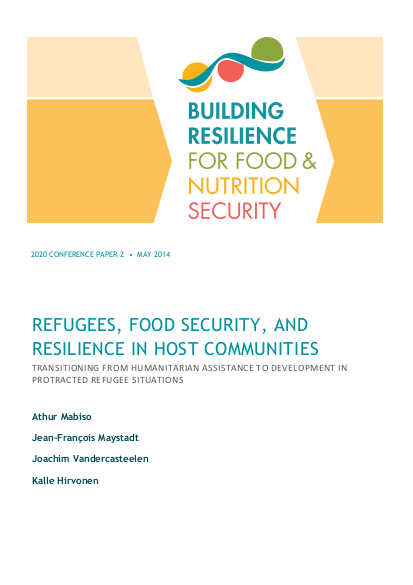
An emerging literature shows how the mass arrival of refugees induces both short- and long-term consequences to hosting countries. The main contribution of this paper is to conduct a selective review of this literature from a food-security and resilience perspective. First, the paper identifies a number of direct and indirect food-security consequences of hosting refugees. It provides a conceptual framework for discussing these various channels through which refugee inflows influence food security in the hosting countries. In the short run, violence, environmental degradation, and disease propagation are risks, with indirect implications for food security, while the long-run channels include changes in infrastructure, trade, and labor markets, as well as competition for resources. Second, the literature review finds that the impact of large-scale influxes of refugees on host communities and on their food security is unequally distributed among the local population. Locals with better ex ante access to resources, education, and political connections are more likely to benefit as a result of refugee inflows, while the disadvantaged become increasingly vulnerable. In the short run, humanitarian aid (for example, food aid) is the usual global response, with varying impact on the food security and resilience of host countries. Effectiveness of the humanitarian aid depends, however, on its nature and on the country context, both of which need careful consideration. In the long run, humanitarian aid should pave the way for development. In particular, investments such as improving road infrastructure and fostering trade with refugees’ countries of origin are strategies worth exploring for enhancing resilience and transitioning toward development. Finally, we stress the need for more research on the consequences of refugees and alternative polices on food security and resilience in host communities.
